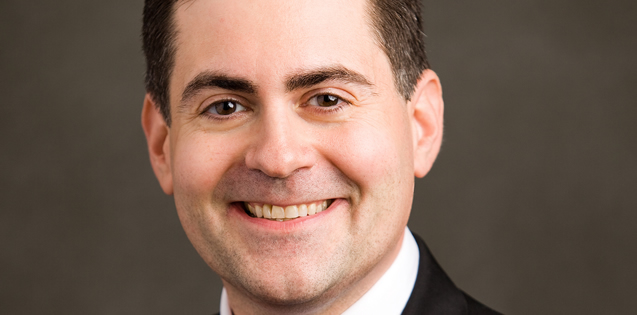At only 43 years of age, Dr. Russell Moore is extraordinarily accomplished. The native Mississippian is an author, pastor, ethicist, theologian, TV commentator, husband, father of five boys, and president of the Southern Baptist Ethics & Religious Liberty Commission.
The Wall Street Journal has called him “vigorous, cheerful, and fiercely articulate,” and I certainly found that to be the case when I spoke with him over the phone recently. During our conversation, he addressed singleness in American churches, porn use, and whether he considers Catholics to be Christians, among other topics. There was no shortage of thought-provoking responses from Dr. Moore.
1. Our church pews are filling up with lovely single women in their 30s who aren’t even being asked out on dates. What’s behind this?
I think one of the causes for this is the decline of marriage in this culture, and I think there are several factors behind that. One factor, I think, is a weakening of male responsibility. Men are not expected to act like men, and they’re not mentored to know how to act like men at an early age. And so the 20s then become a time of adolescence, for men at least.
I think another factor is the epidemic of pornography within the culture that causes men to simultaneously see women as objects of their sexual pleasure and also to fear intimacy. I think that’s the tragic ingenuity of Satan’s design behind the pornography epidemic.
And I think the final problem is the way the culture, including sadly, much of the church culture, fears marriage. There is a value placed on economic success that often implicitly or explicitly sees marriage as a barrier to economic success and certainly sees children as a barrier to economic success. And so before we can address this crisis, we’ve got to get beyond that.
2. You spoke at a colloquium on marriage and family at the Vatican recently, despite knowing you would be criticized for it. Do you think evangelicals are close enough doctrinally to be considered brothers and sisters of Catholics, or are we truly two different religions?
Well, I am a dyed-in-the-wool Protestant and beyond a Protestant, a Baptist in a free church tradition. But as an evangelical, I think that one stands before Christ on the basis of the new birth, not on the basis of his or her church membership or affiliation — which means that I don’t think anyone inherits the kingdom of God because he’s a Baptist or a Presbyterian or an Anglican. And I don’t think anyone is disqualified from the kingdom of God because he or she is part of the Roman Catholic church. Many of the reformers were still in the Catholic church when they were teaching and articulating and recovering the biblical Gospel, so I think there are many Roman Catholics who know Christ, and I think there are many Protestants who don’t.
And the Vatican colloquium, of course, was not a papering over of our differences. This colloquium was not only a gathering of Catholics and evangelicals, but also Mormons and Sikhs and Buddhists and Taoists and Muslims who were coming together to say, “We disagree on a thousand things, but we agree on marriage as embedded in the natural order.”
3. Speaking of that issue, you’ve written diplomatically about the evangelical position on same-sex marriage. But what would you say to a person who’s living a gay or lesbian lifestyle and bluntly asks you, “So do you think I’m going to hell?”
My response would be to say is that everyone living in unrepentant sin is going to hell. And then I would talk about what the Scripture teaches in Romans 1-3, which says that all of us are sinners and all of us need reconciliation with God through the blood and righteousness of Jesus Christ. And so the answer is yes, but the answer would be yes to any person who is not repenting of sin and clinging to Christ.
4. While we’re talking about sexual sin, a recent Barna survey found that 70 percent of self-described Christian men are viewing porn. What can churches do to address this epidemic?
The first thing is to address pornography head-on from the pulpit. This is a sin that needs to be called to repentance, and so it needs to be confronted prophetically with the preaching of the Word of God. And that means deconstructing a sense that many men have that pornography is an uncontrollable force.
I had one man say to me once that “pornography happens to me from time to time.” Pornography doesn’t “happen” to you. Pornography is something you are seeking out, and so we have to deconstruct that from the pulpit and also deal with it in terms of the ministry of the church and the discipline of the church. We need to say to those who are enslaved to pornography, “We have resources to help you,” and then to deal with men who refuse to avail themselves of that.
I think that’s important, but also I think we need to talk about what the Scripture talks about with respect to how to confront temptation. And that means training boys, particularly — long before they’re going to face pornography — about what it means to withstand and overcome temptation with the Spirit of Christ, which means addressing porn earlier than any parents or churches want to. I think some churches wait to talk about porn until after many of the boys in their churches are already enslaved to it, because they’re afraid that if they talk about it too soon that it’s going to become enticing to the boys. I think that’s a wrong-headed strategy.
5. Producer David Cronenberg once said, “If you’re always being observed, and your presence changes everyone’s behavior, you lose the ability to observe things in their natural state. That’s why huge stars, surrounded by sycophants and hangers-on, end up with a distorted worldview. They never see what’s real anymore.” How do you maintain a realistic view of your smallness before God when so many people revere you and can’t help but treat you like you’re a big deal?
Well, I’m 5 foot, 7 inches, so it’s not hard for me to keep a realistic view of my smallness before God and before everyone else. But I think that’s a good question for anyone in ministry.
The main way for me is having long-term friendships with people I’ve know from our days together in college or seminary or even before who are able to speak directly to me and sometimes even to ridicule me when the Lord needs that to puncture some unrealistic view I have of myself or something else.
I think that’s important, and the other thing is being deeply embedded in a family. Parenting is humbling. As a friend of mine said, “Parenting is not just humbling, it’s oftentimes humiliating.” But even beyond that, it’s important to have an extended family of people with deep ties who remember you when you were in Sunday school and high school and every other time.











